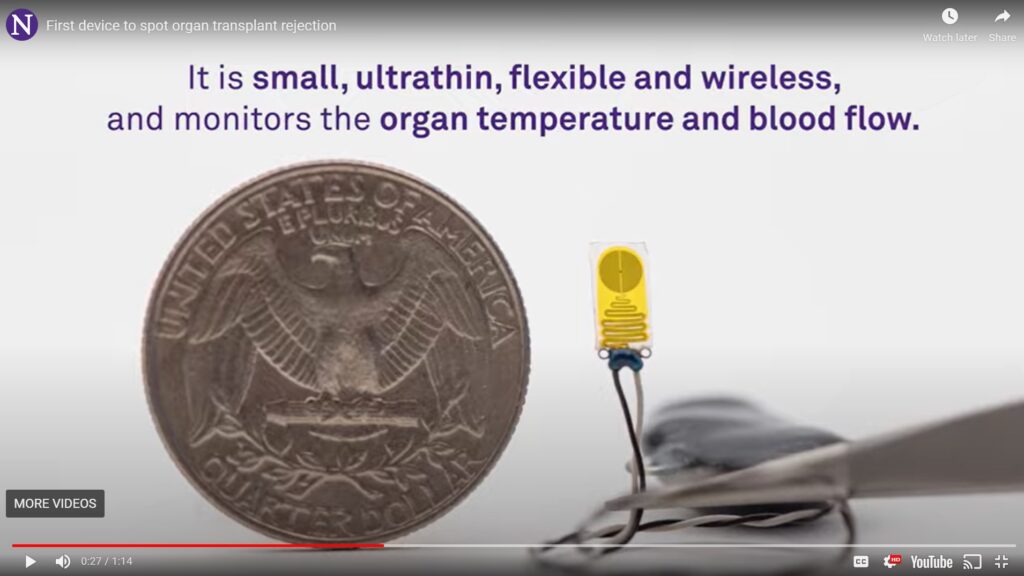Northwestern University researchers have developed the first electronic device for continuously monitoring the health of transplanted organs in real time.
Sitting directly on a transplanted kidney, the ultrathin, soft implant can detect temperature irregularities associated with inflammation and other body responses that arise with transplant rejection. Then, it alerts the patient or physician by wirelessly streaming data to a nearby smartphone or tablet.
In a new study, the researchers tested the device on a small animal model with transplanted kidneys and found the device detected warning signs of rejection up to three weeks earlier than current monitoring methods. This extra time could enable physicians to intervene sooner, improving patient outcomes and wellbeing as well as increasing the odds of preserving donated organs, which are increasingly precious due to rising demand amid an organ-shortage crisis.
The study is published in the journal Science.

